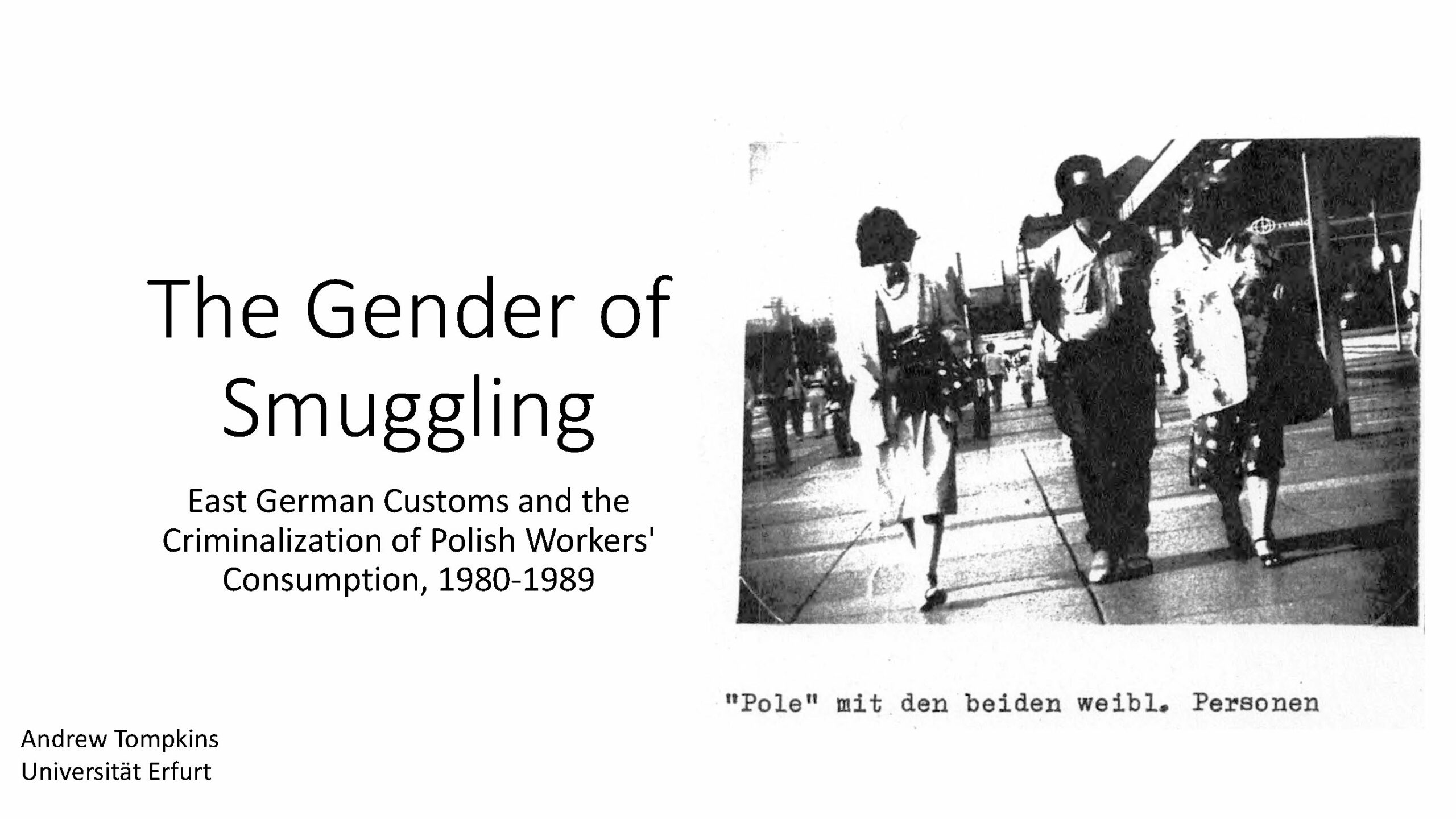
Presented at the workshop “Between Deviance and Marginalization: Gendered Perspectives on Transnational Crime” at the Universität Erfurt.
Introduction: In March 1989, police and Stasi officers from the East German districts of Erfurt, Gera and Suhl gathered together to discuss what they perceived as a growing problem of customs and currency offences. Conveniently for GDR authorities, these were (almost by definition) committed overwhelmingly by foreigners, particularly by Poles – a side effect of the higher standing of living in East Germany than in its nearest neighbor within the socialist bloc, Poland. To illustrate the magnitude of the problem of “smuggling and speculation,” one officer rattled off a list of items “smuggled” from the GDR into Poland by a single person between 1987 and 1989: they included 100 kg of pepper, another 100 kg of raisins, 750 packets of coffee, 480 bottles of hairspray, 50 pairs of shoes, and a further 50 pairs of children’s shoes. The source contains little information about the smuggler in question, apart from their gender: the accused (die Beschuldigte) was a woman…